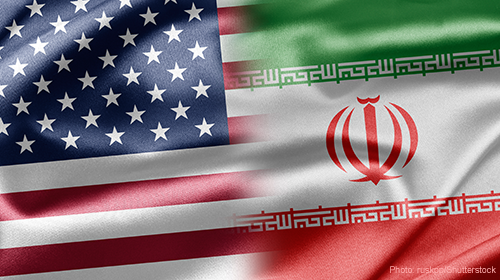
Q: Why is the government trying to shut down a Greek billionaire's defamation suit against an influential anti-Iran advocacy group?
A: It's a secret.
United Against Nuclear Iran is a prominent nongovernmental organization that seeks to influence U.S. policy on Iran and is known for "naming and shaming" companies that do business with the country. Last year, the organization accused Victor Restis, a Greek shipping magnate, of doing illicit business with Iran. Restis sued the group for defamation, and that case is currently pending in New York.
Last month, the U.S. government suddenly intervened in the case, arguing that the lawsuit had to be immediately dismissed because further litigation would reveal "state secrets." It provided no public explanation. Facing a total vacuum of information, the media has been left to speculate about what the government is trying to hide. Unlawful through unaffiliated organizations? Foreign intelligence ?
The state secrets privilege is a legal doctrine that can be legitimately applied only in the very narrowest of circumstances. When properly invoked, the privilege permits the government to block the release of information in a lawsuit that, if publicly disclosed, would cause harm to national security ã for example, the technical specifications of very sensitive military equipment.
In recent years, however, the government has increasingly sought to use the state secrets privilege not merely to shield particular information from disclosure, but to keep entire cases out of court. The government has used the privilege to avoid accounting for torture, to silence national security whistleblowers, to lawsuits alleging racial discrimination, and to negligence. Government agencies have increasingly relied on the state secrets doctrine as a legal loophole to evade accountability for their illegal actions and to cover up embarrassing facts.
The invocation of state secrets is particularly extraordinary in this case, even considering the ballooning use in the last two administrations of what was once a rare tactic. Previously ã even in cases involving extraordinarily sensitive subject matters, such as torture, surveillance, intelligence, and secret weapons systems ã the public had some basis for understanding why the government had an interest in the case when it tried to shut down lawsuits based on state secrets. But here, all we have are questions: Why does the government want to keep the public entirely in the dark about its interest in a defamation suit to which it's not even a party? Why does the government believe that a federal court shouldn't even hear this case? And how could the lawsuit possibly reveal state secrets, given that neither side has any acknowledged governmental connections that would entitle them to possess government secrets?
Responding to this unprecedented lack of transparency, the âü¯áû颈§Ý§Ã¿«, along with the Brennan Center for Justice, the Center for Constitutional Rights, the Constitution Project, the Electronic Frontier Foundation, and the Sunlight Foundation, filed an amicus brief on Wednesday urging the court to carefully consider whether this case justifies the government's efforts to impose such blanket secrecy.
When the government abuses the state secrets privilege, it robs victims of their day in court. And the more broadly the government uses its secrecy power, the less the American people can know about their government's actions and hold it accountable.
For now, we don't know why the government wants to block the Restis v. UANI lawsuit. But regardless of who ultimately wins the defamation lawsuit, one thing is clear: When courts allow the government to overuse its state secrets privilege, it's our democracy that loses.
Learn more about government secrecy and other civil liberty issues: Sign up for breaking news alerts, , and .

